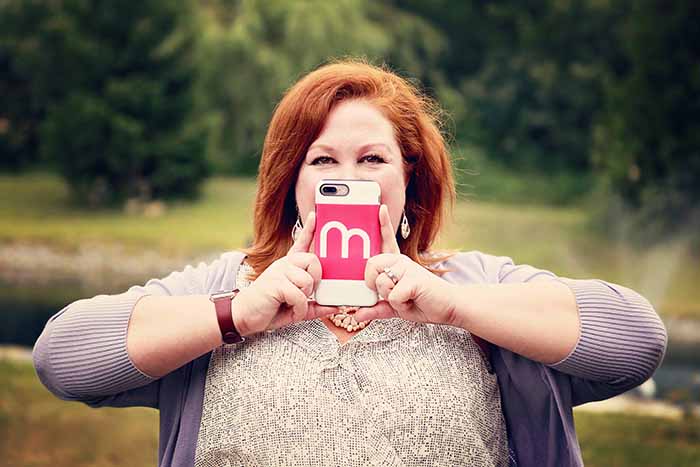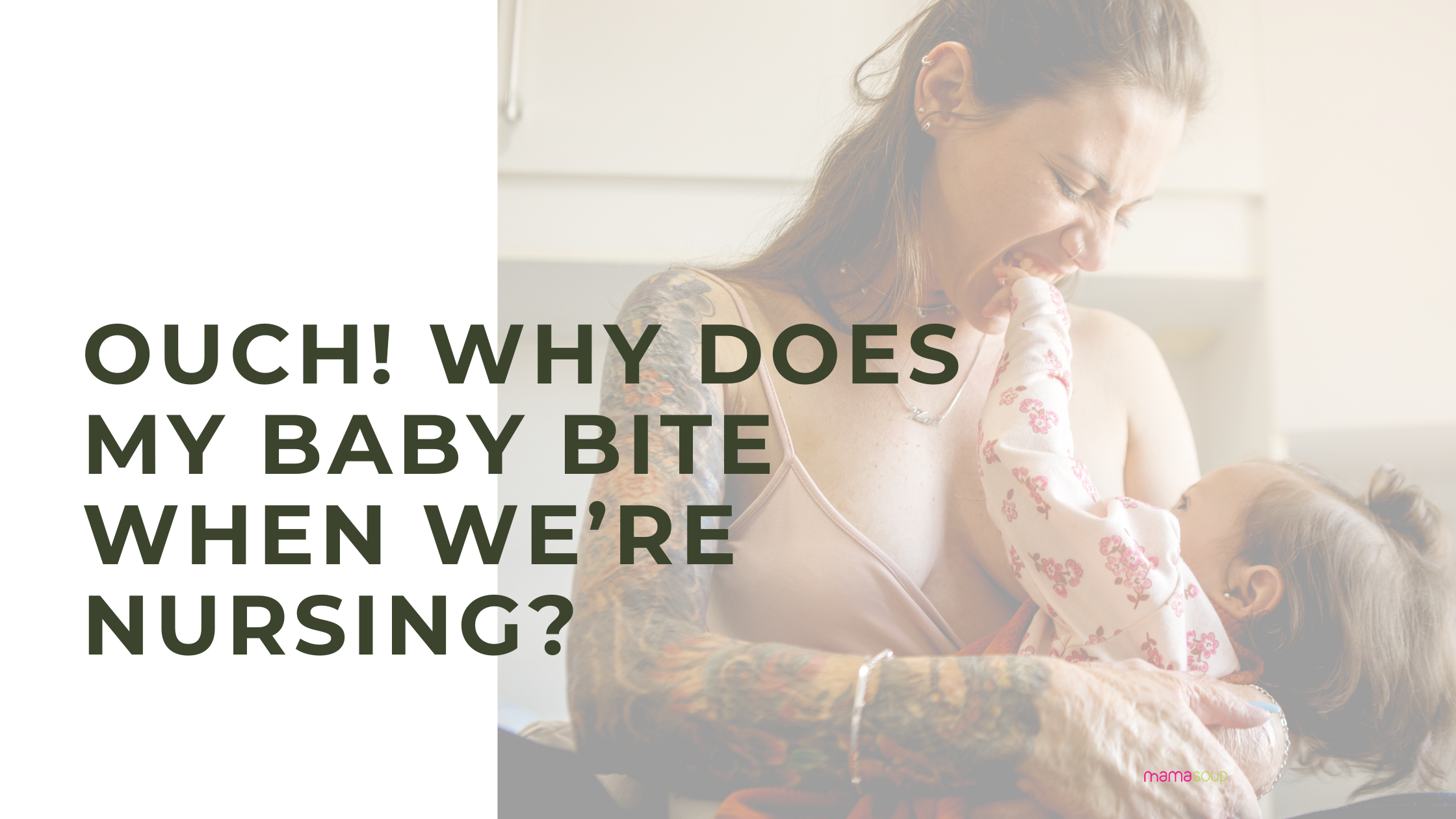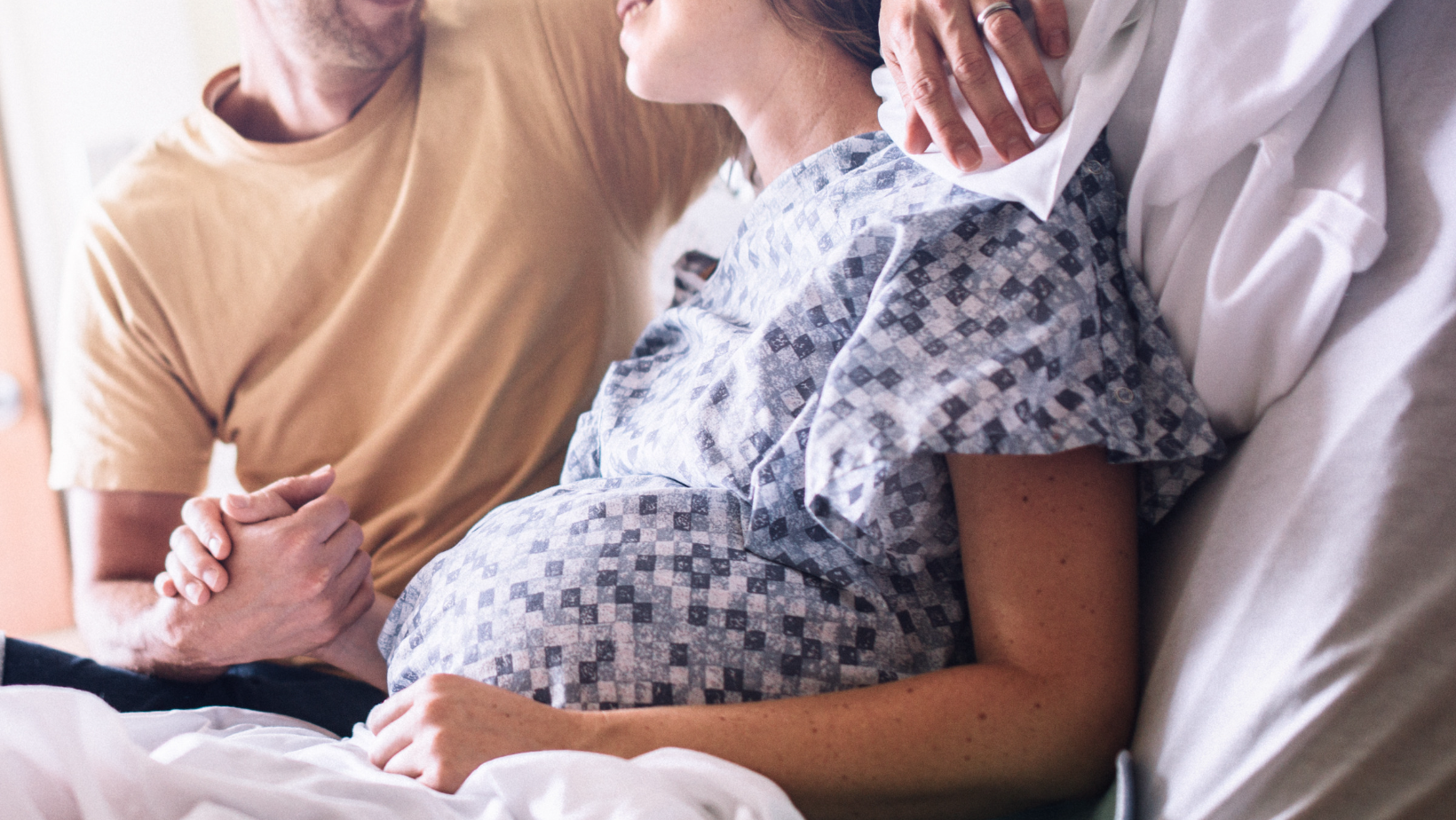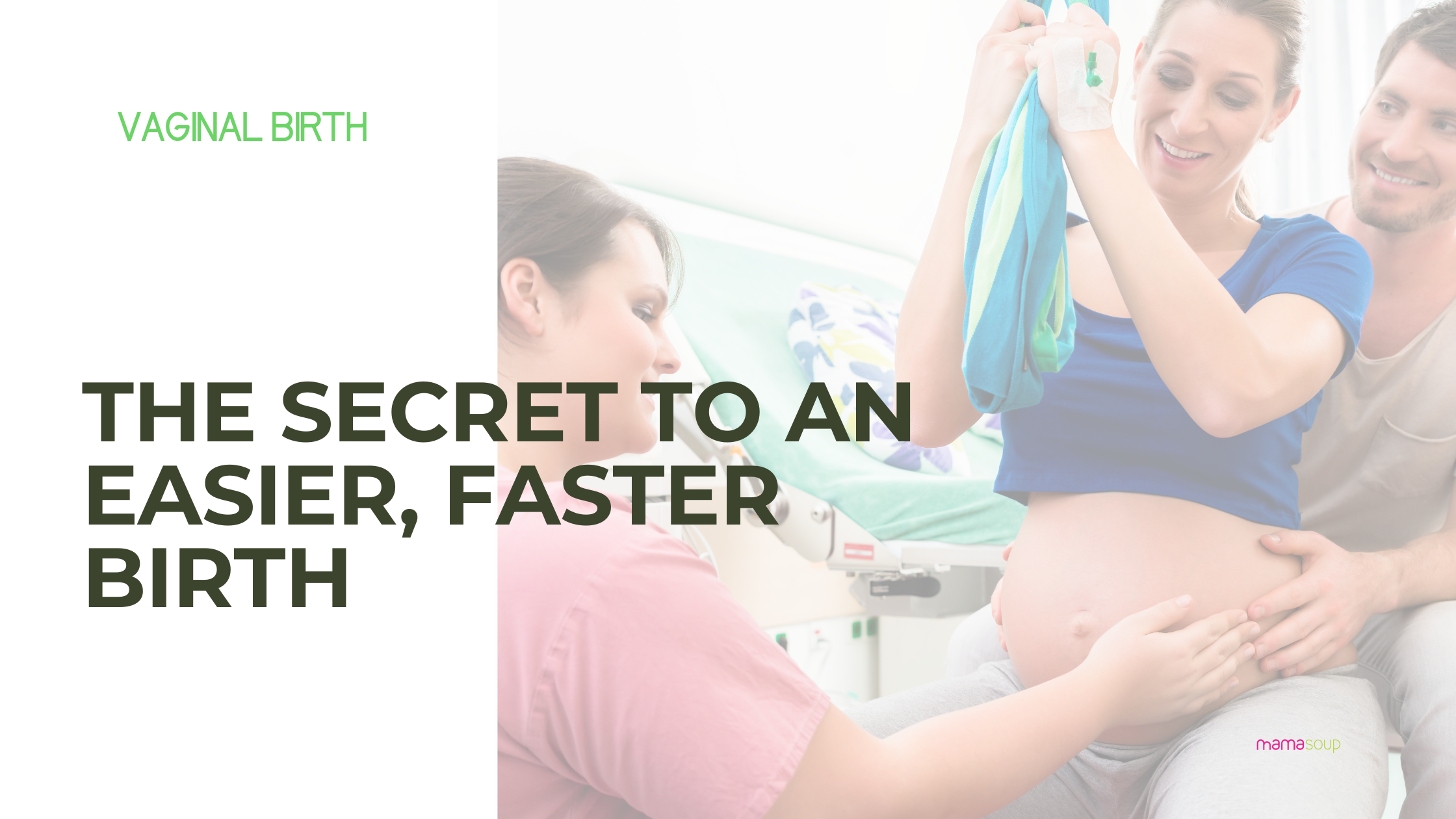When to go to the Doctor After a Positive Pregnancy Test
So you took the home pregnancy test because your period was late. You sat on the toilet, peed on the stick and waited for minutes that felt like hours. When the double lines appear, you realize that life's about to change. Where to start? And when should you visit the doctor?
Don't panic!
If you've had a positive pregnancy test, you'll probably feel anxious and worried. However, there's no reason to worry. In fact, you should try relax as much as possible. It's normal to fee nervous after having a positive pregnancy test.
Want a free downloadable guide to your prenatal appointments?
GRAB THE FREE GUIDE TO ROUTINE DOCTOR'S APPOINTMENTS AND TESTS DURING PREGNANCY>>
Generally speaking, you should make an appointment to see your doctor for when you're about eight weeks pregnant. You can call and make an appointment the minute you see that positive pregnancy test because some doctors' wait times are long.
If you've had miscarriages, have an existing medical condition or are experiencing any pain or bleeding, give your doctor's office a call and let them guide you on what to do next.
What to do after a positive pregnancy test
So maybe you're not going to go to the doctor right after you see your positive pregnancy test, but there are some things that you can do while you wait. It's completely normal to look down at that little stick and wonder what the heck to do next.
Take it slow.
There's no need to rush into making any decision right away. Instead, wait until you've talked with your doctor before deciding when to start planning. But if you're really keen to get started, we're here to help guide you along with your next steps!
1) Consider a second pregnancy test
A faint line on your pregnancy test can be really confusing, so if your test showed one try another test. You may be tempted to rush out to the drugstore and buy every different brand and type of pregnancy test, but instead just choose one and read the directions thoroughly: it's more common to see a false negative than a false positive pregnancy test. But not using the test properly can increase your chance of seeing a false positive.
If you miscarried right after conception, an at-home pregnancy test may pick up the pregnancy hormone hCG and give you a positive result even though you're no longer pregnant. This is called a "chemical pregnancy".
2) Calculate baby's due date
Even though a due date is just a guide, you'll want to know when you can expect to meet your baby! People usually get pregnant between 11 and 21 days after the last day of their period, but everyone's cycles are different. Doctor's go off the first day of your last period. Confusing, right? Our guide to your prenatal appointments outlines a couple of ways to calculate your due date:
GRAB THE PRENATAL APPOINTMENTS GUIDE FOR FREE >>
3) Pour a mocktail and celebrate!
One of the most important things to do after you get a positive pregnancy test is to let the news sink in and celebrate! Even after becoming pregnant with my first baby unexpectedly when I was just twenty years old, my nanny said to me:
There are a lot worse things in this world than bringing a beautiful baby into a loving family.
She was absolutely right. Thirty years later and I've never regretted a day with my daughter.
Having mixed feelings about being pregnant is perfectly normal so if you're not in the mood to celebrate, that's okay too. Sit with your feelings and get out a journal to work through some of your feelings after a positive pregnancy test.
Whether you're happy or sad about being pregnant, your body is surging with the hormone progesterone and that may make you more likely to cry and feel panicky about your life, future and career. Try to relax and do some deep breathing.
Know your options.
If you have a positive pregnancy test, there are several things you should consider:
4) Choose the care provider for you and your baby
When you have your first visit with your doctor after your positive pregnancy test, you'll have a chance to discuss who will care for you during pregnancy, at your birth and during your postpartum.
How do you know what care provider to use for your birth? Where we are, you've got options:
- Family doctor with hospital privileges.
- Midwife who can attend your birth at home, a hospital or a birthing centre.
- Obstetrician who can attend your birth in a hospital.
If you know that you want to have your baby in your local hospital, call the Labor and Delivery unit and ask what doctor they would recommend. Nurses know who they would use for their own births (and they often request certain doctors!). They may be willing to share that information with you, too.
Remember, no matter who you decide to give with at the beginning of your pregnancy doesn't have to be the person you stick with- you can try different care providers if you're not jiving with your initial pick.
5) Learn about healthy habits for pregnancy
During pregnancy, there is no healthy amount of smoking or drinking recommended. But what else do you need to know about having a healthy pregnancy?
Maybe you're wondering what medications you can take for a headache or a virus? Obviously the best treatment is no medications at all, that's why our guide includes natural remedies first and then it informs you what to try next.
If you've been regularly exercising before you received your positive pregnancy test and you're considered low risk for complications, you can safely keep doing those activities. As long as you stay away from activities that involve full contact or a risk of falling (hockey or horseback riding)
If you haven't been regularly exercising, now's your chance! Get into the habit of at least 30 minutes of moderate activity, most days of the week. Start slow and build your way up. It's great to build up your stamina and strength during pregnancy for an easier recovery from birth.
This blog is a great resource for healthy pregnancy tips and a couple of great places to start are: 17 Ways to a Healthier Pregnancy and 5 Things First-Time Moms Wished They'd Known Before Giving Birth
Be prepared for the next steps.
If you've had a positive pregnancy test, you might feel excited and anxious at the same time. It's normal to feel both emotions!
6) Learn about maternity leave and benefits options
When you're ready to tell your employer about your pregnancy, your next stop should be at the benefits department to learn about your maternity leave options. You may have insurance benefits that cover pregnancy massage, lactation consults or even doula care!
As far as maternity leave, Canada offers 18 months at 60% of your wage, up to a certain amount. You can split it with your partner or use it all yourself. In the US, the Family and Medical Leave Act lets you take up to 12 weeks of unpaid leave as long as you meet certain requirements.
7) Start saving money
As someone with four kids, I can't stress enough how much money it costs to raise them. Even though babies can be relatively inexpensive if you breastfeed and accept hand-me-downs, as kids get older they cost more money. The truth is that if you wait until you can afford a baby, you'll never have a baby.
I get that as soon as you see that positive pregnancy test you're going to start worrying about things. Money will be a big one, so please don't stress out! This is a great time to assess your family finances, make a budget and start following it. You'll be amazed at how much money you've been wasting. And you'll feel so much better knowing that you've got a plan to save for your future.
8) Decide who to tell about your pregnancy
Whether you decide to share it in a photo on the 'gram or wait until you're past the first trimester to quietly tell your friends and family, there's no 'right way' to share your big news.
Many people decide to wait awhile to make sure everything is healthy with the baby and the pregnancy. But that can make it so hard to feel connected to a village. That's why joining an anonymous community like MamaSoup can be so helpful. You can create a profile, browse the chat topics and join in on the conversation all while staying completely anonymous. That way, you can make friends, find support and ask questions before telling your friends and family.
As far as work goes, you don't have to say anything until you start to show so don't feel any pressure to share your news unless your job is extremely dangerous or physically taxing.
Now that you know when to go to the doctor after a positive pregnancy test and eight other things you should do, your pregnancy should be off to a good, healthy start. Enjoy this special time in your life and try to relax, Mama.
WHERE TO GO NEXT: Guide to Hiring a Virtual Doula
Post Gallery
Hey there, I’m Joanne.
I’ve spent about 20 years serving women as a nurse, doula and Lamaze educator. I have 4 kids and I know firsthand how lonely and isolating motherhood can be, so I created MamaSoup. I'm mostly known for my love of red wine, spontaneously singing and my confidence in being my true self on social media. When I’m not busy building women up, you can catch me taking Instagram stories of my bulldog Ruby, watching The Handmaid’s Tale, playing MUber (Mom Uber) to my kids or vacationing in my favourite town: Cabo San Lucas, Mexico.
I love serving the world by providing a space for moms to connect and support each other. In my opinion, moms are the backbone of communities because they are (literally) raising the future!
As the founder and CEO of MamaSoup, I’ve been featured on CHEX TV Morning Show, KawarthaNOW, Economic Development- The City of Kawartha Lakes and MyKawartha.
Still with me? Join me over at MamaSoup to keep the conversation going!
Read More










